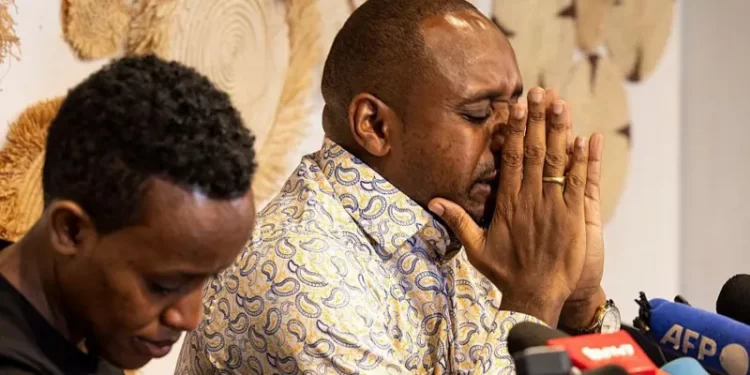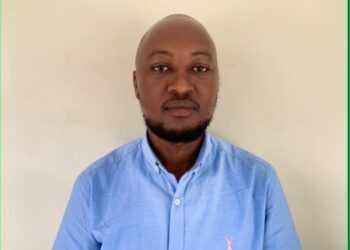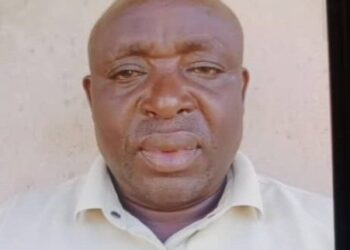A Ugandan activist has told the BBC that she was raped while held in detention in Tanzania, sparking outrage from regional rights groups and calls for urgent investigations. The activist, Agather Atuhaire, said she was violently assaulted and blindfolded by men in plain clothes during her incommunicado detention.
Atuhaire, who was found abandoned at the Tanzania-Uganda border after being held for days, described how she was stripped and sexually assaulted, showing BBC journalists scars from being handcuffed tightly. She said the abuse was so severe that she screamed, and her captors had to cover her mouth to silence her.
Her detention was alongside Kenyan activist Boniface Mwangi, who was also found abandoned at the Tanzania-Kenya border after being held in similar conditions. Mwangi gave a harrowing account of his own torture, including being stripped naked, hung upside down, beaten on his feet, and sexually assaulted. He described mental anguish and physical injuries including broken toes and wounds on his private parts.
Both activists had traveled to Tanzania to express solidarity with opposition leader Tundu Lissu, who was charged with treason and appeared in court shortly before their arrests. Despite being allowed entry, Mwangi and Atuhaire were denied access to Lissu’s court hearing and were subsequently detained.
Tanzanian authorities have not publicly responded to the allegations. However, the police chief in Dar es Salaam dismissed Mwangi’s account as hearsay and urged the activists to file formal complaints if they wished investigations.
The detentions and alleged abuses have provoked widespread condemnation. Regional rights groups have demanded an immediate inquiry, and the US Department of State’s Bureau of Africa Affairs expressed deep concern, noting Atuhaire’s recognition in 2024 as an International Women of Courage Awardee. The bureau urged all East African governments to hold accountable those responsible for human rights violations.
Kenya’s government has officially protested Mwangi’s detention, accusing Tanzania of denying consular access despite repeated requests. Mwangi’s disappearance prompted protests and calls for his release from civil society groups across Kenya.
At a press conference in Nairobi, Atuhaire and Mwangi described the brutal treatment in detail. Atuhaire said she heard Mwangi’s screams and threats against him, including threats to circumcise him. Mwangi revealed that his captors mocked him and filmed the abuses, threatening to leak footage should he speak out.
President Samia Suluhu Hassan of Tanzania had earlier warned against “meddling” by foreign activists in Tanzanian affairs, especially ahead of upcoming elections, a stance critics say has led to a crackdown on dissent.
Mwangi described their abduction from a prominent Dar es Salaam hotel as brazen and indicative of the government’s disregard for public opinion. He said the ordeal strengthened his resolve for pan-African solidarity against repression.
Atuhaire lamented finding Tanzania’s government even more oppressive than Uganda’s, describing it as “a worse foreign country.”
The alleged abuse has raised urgent concerns about the human rights environment in East Africa, with calls mounting for regional leaders to uphold treaty obligations and protect activists.







Discussion about this post